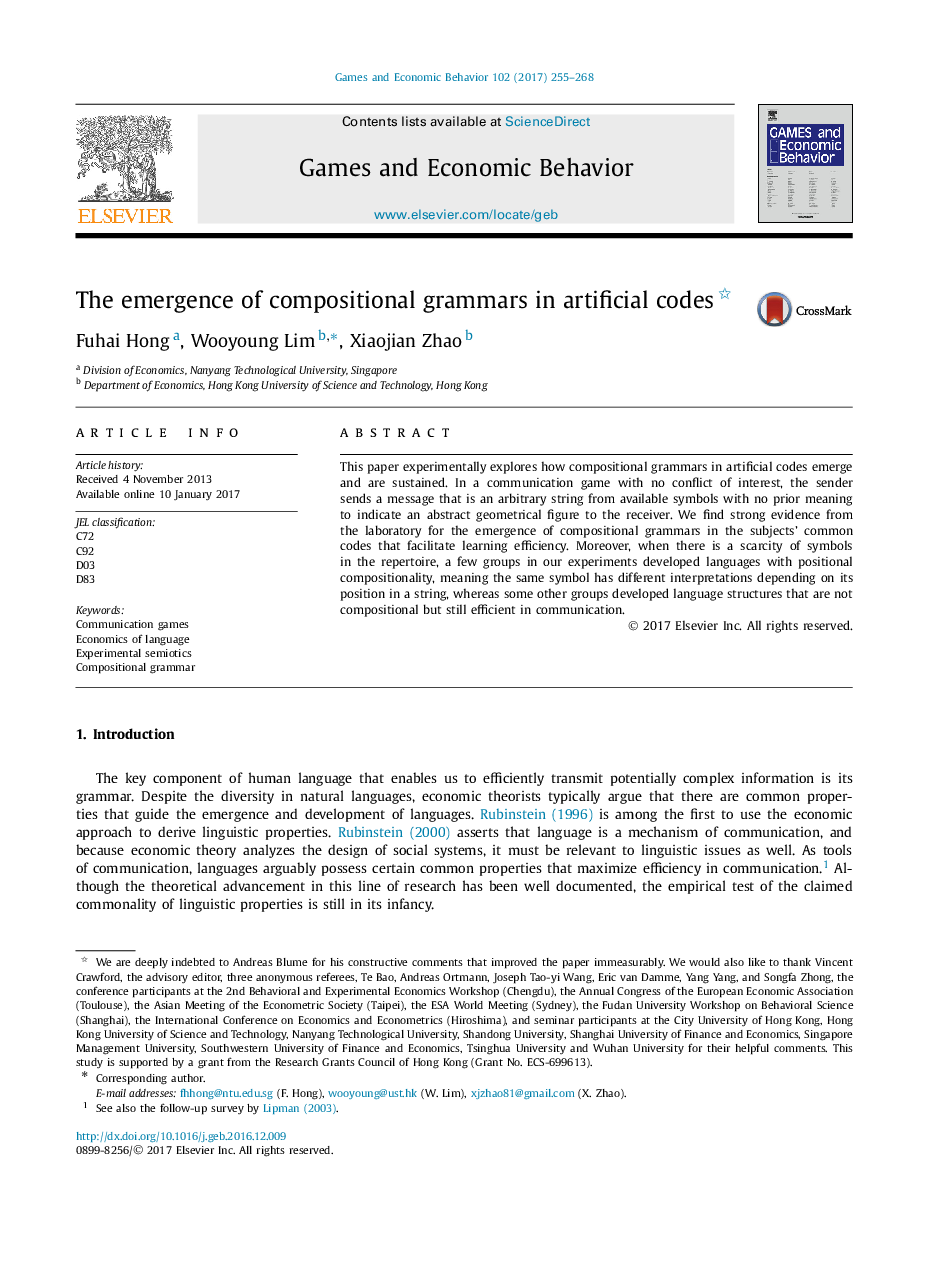| Article ID | Journal | Published Year | Pages | File Type |
|---|---|---|---|---|
| 5071290 | Games and Economic Behavior | 2017 | 14 Pages |
Abstract
This paper experimentally explores how compositional grammars in artificial codes emerge and are sustained. In a communication game with no conflict of interest, the sender sends a message that is an arbitrary string from available symbols with no prior meaning to indicate an abstract geometrical figure to the receiver. We find strong evidence from the laboratory for the emergence of compositional grammars in the subjects' common codes that facilitate learning efficiency. Moreover, when there is a scarcity of symbols in the repertoire, a few groups in our experiments developed languages with positional compositionality, meaning the same symbol has different interpretations depending on its position in a string, whereas some other groups developed language structures that are not compositional but still efficient in communication.
Related Topics
Social Sciences and Humanities
Economics, Econometrics and Finance
Economics and Econometrics
Authors
Fuhai Hong, Wooyoung Lim, Xiaojian Zhao,
